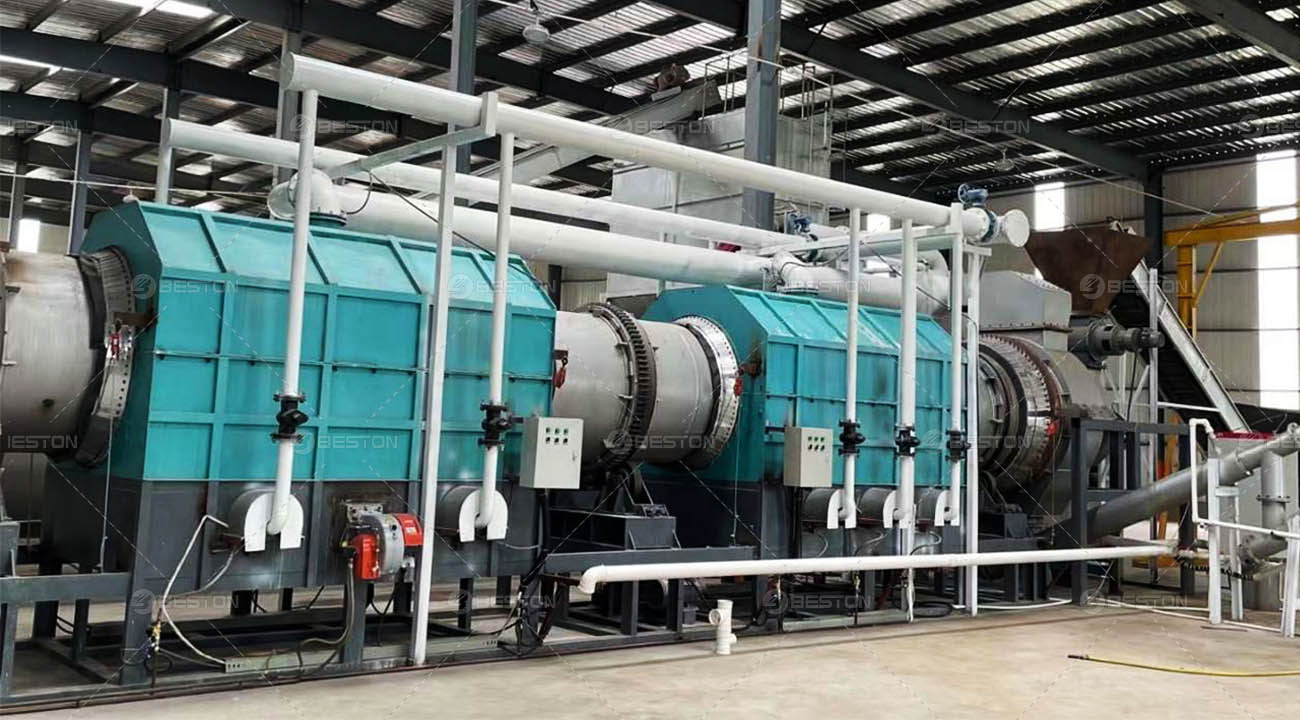The sawdust charcoal making machine is a sophisticated piece of equipment designed to convert sawdust into high-quality charcoal efficiently. However, several factors can influence its production efficiency and overall performance. Understanding these factors is crucial for optimizing charcoal production and achieving maximum output. In this article, we delve into the key determinants that impact the efficiency of a sawdust charcoal making machine.
Raw Material Quality
The quality of the sawdust used as the raw material significantly affects the charcoal production process. High-quality sawdust with uniform particle size and moisture content ensures smoother operation and more consistent output. Contaminants or impurities in the sawdust can impede the conversion process and result in lower efficiency.
Moisture Content
The moisture content of the sawdust plays a critical role in the charcoal production process. Excess moisture can prolong the carbonization process and increase energy consumption. Conversely, too little moisture can lead to incomplete carbonization and lower charcoal yield. Maintaining optimal moisture levels is essential for maximizing production efficiency.
Temperature Control
Temperature control is paramount in ensuring efficient charcoal production. The carbonization process requires precise temperature management to achieve optimal results. Fluctuations in temperature can affect the quality and yield of the charcoal produced. Advanced sawdust charcoal making machine employs sophisticated temperature control systems to maintain consistent heat levels throughout the carbonization process.
Carbonization Time
The duration of the carbonization process directly impacts charcoal production efficiency. Longer carbonization times may be necessary to achieve higher-quality charcoal, but they can also reduce overall throughput. Conversely, shorter carbonization times may result in lower-quality charcoal. Balancing carbonization time with production goals is essential for maximizing efficiency.
Equipment Maintenance
Regular maintenance and upkeep of the sawdust charcoal making machine are essential for ensuring optimal performance. Over time, wear and tear can affect various components of the equipment, leading to decreased efficiency and productivity. Routine inspections, lubrication, and component replacements are necessary to address any issues promptly and maintain peak performance.

Operator Skill and Training
The proficiency of the equipment operator also influences charcoal production efficiency. Proper training and skill development are essential for operating the sawdust charcoal making machine effectively. Operators must understand the equipment’s functions, controls, and maintenance requirements to maximize productivity and minimize downtime.
Energy Efficiency
Energy consumption is a significant factor in charcoal production efficiency. Sawdust charcoal making machines that utilize energy-efficient technologies can reduce operating costs and environmental impact. Efficient combustion systems, insulation materials, and heat recovery mechanisms can all contribute to higher energy efficiency and overall production efficiency.
Feed Rate
The rate at which sawdust is fed into the charcoal production machine affects production efficiency. Overloading the equipment can lead to clogging, uneven carbonization, and reduced throughput. Conversely, underfeeding the machine may result in underutilization of capacity and decreased efficiency. Optimizing the feed rate to match the equipment’s capabilities is essential for maximizing production efficiency.
Environmental Conditions
Environmental factors such as humidity, temperature, and altitude can also influence charcoal production efficiency. Extreme conditions may affect the performance of the equipment and the quality of the charcoal produced. Adequate ventilation, climate control, and environmental monitoring can help mitigate the impact of external factors on production efficiency.
Conclusion
In conclusion, several factors contribute to the production efficiency of a sawdust charcoal making machine, including raw material quality, moisture content, temperature control, carbonization time, equipment maintenance, operator skill, energy efficiency, feed rate, and environmental conditions. By addressing these factors and implementing best practices, operators can optimize charcoal production efficiency, maximize output, and achieve consistent high-quality charcoal. Investing in advanced equipment and ongoing training can further enhance efficiency and competitiveness in the charcoal production industry.

Comments
No comments yet. Be the first to react!